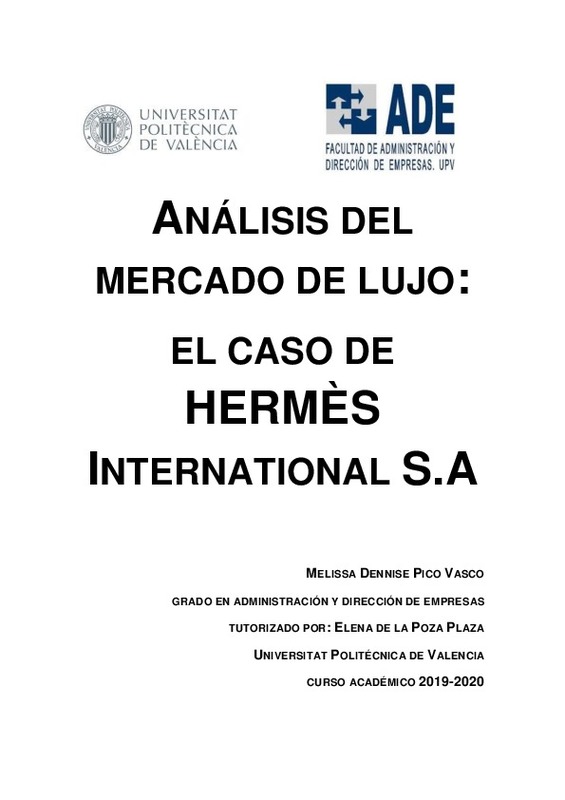|
Resumen:
|
[ES] El mercado de lujo en sí mismo es muy diverso, podemos encontrar desde grandes conglomerados de lujo que son dueños de muchas marcas y elaboran productos de diversas categorías, hasta empresas familiares que han sabido ...[+]
[ES] El mercado de lujo en sí mismo es muy diverso, podemos encontrar desde grandes conglomerados de lujo que son dueños de muchas marcas y elaboran productos de diversas categorías, hasta empresas familiares que han sabido evolucionar con el mercado y fortalecerse bajo el nombre de una sola marca.
Pero, las empresas que conforman el sector son sólo una pequeña parte de este enorme mercado, donde la relación entre la necesidad, las motivaciones y el reflejo que las personas quieren mostrar a la sociedad, son sólo algunas de las variables que determinan el consumo de estos productos y por tanto, su éxito.
Este trabajo de fin de grado, analiza el lujo desde su conceptualización, a través de la investigación de la palabra lujo y sus características, repasando su raíz etimológica y cómo la historia estableció el significado de lujo que conocemos hoy en día.
Tras entender qué es el lujo, en el informe expondrá quienes son los principales actores en el sector, cuáles son sus actitudes y motivaciones, y en el caso de las empresas, que papel desempeñan sus marcas.
Desde una perspectiva económica, se expondrá cómo los países emergentes ayudaron a que los ingresos del mercado de lujo crecieran año a año durante las últimas décadas y cómo se está desarrollando el panorama económico y financiero actual del sector.
Finalmente, el trabajo se centrará en el estudio de la historia y el desempeño económico de una de las empresas más emblemáticas del sector: Hermès International S.A.
[-]
[EN] The luxury market itself is very diverse, we can find from large luxury conglomerates that own many brands and make products from various categories, to family businesses that have managed to evolve with the market ...[+]
[EN] The luxury market itself is very diverse, we can find from large luxury conglomerates that own many brands and make products from various categories, to family businesses that have managed to evolve with the market and strengthen themselves under the name of a single brand.
But, the companies that make up the sector are only a small part of this huge market, where the relationship between need, motivations and the reflection that people want to show society, are just some of the variables that determine the consumption of these products and therefore their success.
This final degree project analyzes luxury from its conceptualization, through the investigation of the word luxury and its characteristics, reviewing its etymological root and how history established the meaning of luxury that we know today.
After understanding what luxury is, the report will explain who are the main players in the sector, what their attitudes and motivations are, and in the case of companies, what role their brands play.
From an economic perspective, it will be exposed how the emerging countries helped the income of the luxury market to grow year by year during the last decades and how the current economic and financial panorama of the sector is developing.
Finally, the work will focus on the study of the history and economic performance of one of the most emblematic companies in the sector: Hermès International S.A.
[-]
|







